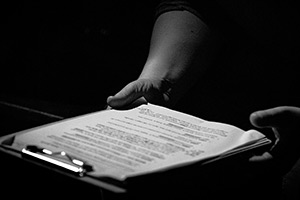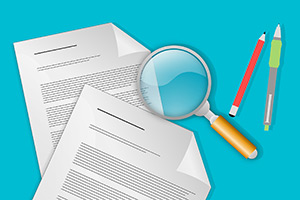My Comedy Career: Nat Saunders
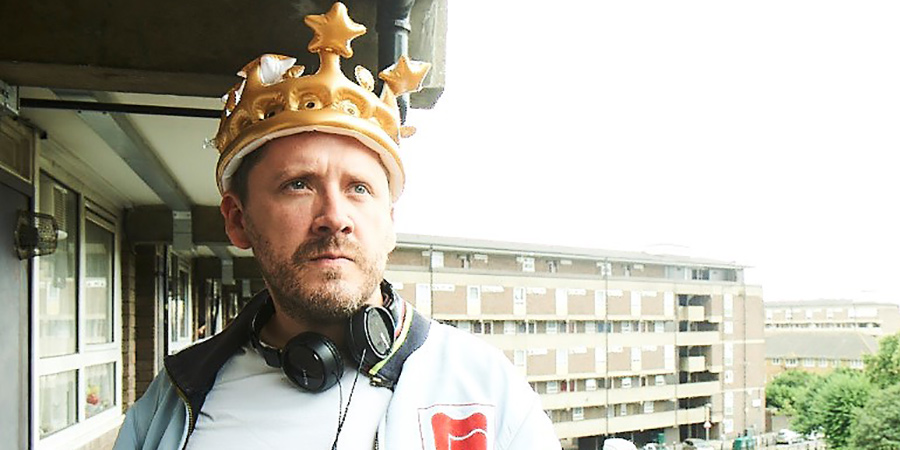
Comedy creator Nat Saunders talks about the importance of tenacity, how every new show is a struggle to get off the ground, why bullying in the industry is a real hot topic for him, and more.
Tell us what you do in your job.
I'm a writer and producer (and soon to be director, but more on that later), and I co-run a production company with my writing/producing partner James Serafinowicz, which is called Consec Industries Ltd.
We specialise in genre TV and film, with an emphasis toward comedy, horror and sci-fi. We've been going as a company for a couple of years, but our slate is getting nice and plump.
James and I have written together for the last ten years or so, when I contributed sketches to the show he was producing, The Peter Serafinowicz Show, which did not get used (still annoyed about that).
Our first sitcom, Sick Note, got picked up by Sky 1 and then went on to Netflix worldwide, which led to us taking a job at Simon Pegg and Nick Frost's production company, Stolen Picture, as their creative directors.
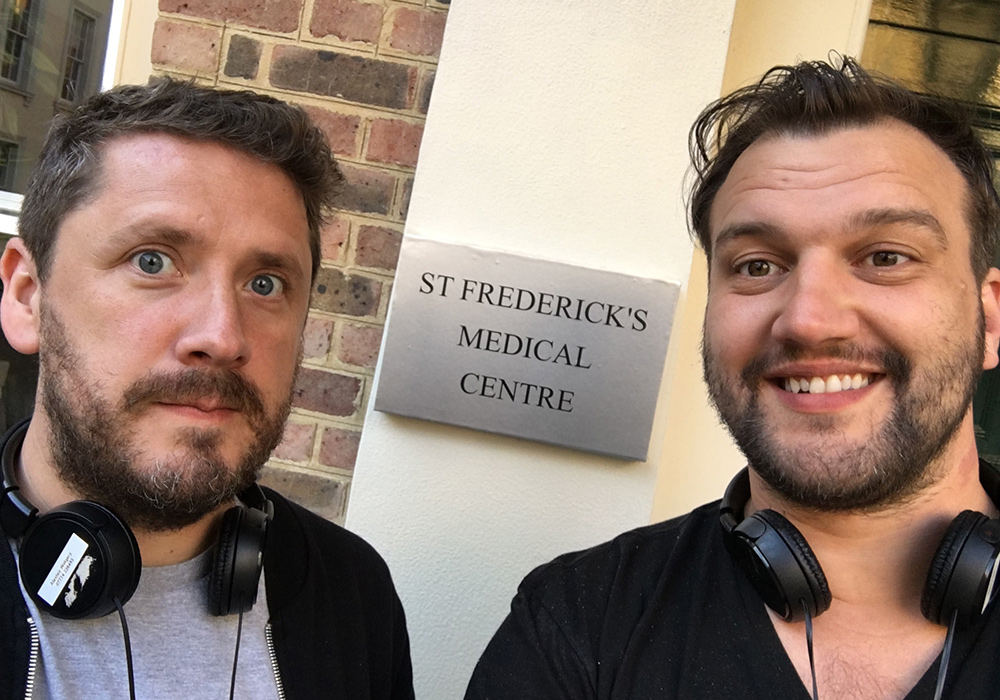
We began our Consec project then, and teamed up with Simon and Nick to create and write Truth Seekers for Amazon. And then we decided to go it alone, about a fortnight before Covid struck, and we've been developing our slate over Zoom from our bedrooms ever since.
Are there any misconceptions as to what you do?
I imagine there are a few. They probably range from assuming there's lots of glamour and hobnobbing (that shit's once-in-a-blue-moon for me), to assuming that once you've made a TV show or two you've got it made (you haven't, every new show is a struggle to get off the ground, competition is always fierce, and hitting the overdraft limit is a regular occurrence).
I imagine people also assume that the finished product they see on their screens is the thing you set out to make, but in my experience every project evolves (sometimes for the better, sometimes for the worse) as you go from creating to pitching to developing to casting to filming to editing and releasing, sometimes becoming something very different along the way.
There's an assumption that a creator has all the control in the world over what they make, but in my experience, that's often not the case.
I guess the main misconception is that anyone really has a clue what they're doing, what will chime with audiences, what will be a hit, and what will tank.
How did you first get involved in the comedy industry?
I was playing in an indie rock band called Nub in the 90s and I moved to London to try and make it. I took on a ridiculous job as the sub-editor of an adult magazine called Men Only, proof-reading dirty stories. This was before the internet decimated soft porn mags.
Despite finding the job embarrassing and silly, I was lucky enough to meet my first writing partner, Chris Hayward, who started on the same day (he was sub-editing Mayfair). My band split up so Chris and I, who spent long days at work filling our time with creating comedy characters and wiring skits, decided to send some of our ideas off to production companies. By mail, because like I said, no internet.
And lo and behold, we got a couple of bites. The next thing we knew, we were taking meetings at the BBC and Talkback, and the shows Big Train and Smack The Pony took some sketches from us.
We got an agent off the back of all that, got to be extras in some Big Train sketches, did our first writers' room, met some other up and coming comedy writers, and started working with a producer, Phil Clarke, who helped us develop sitcoms.
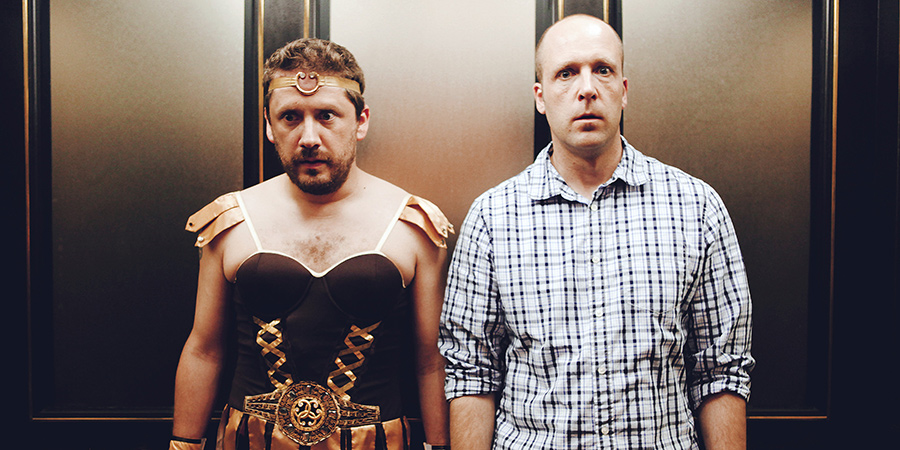
It wasn't plain sailing from then on, however. Our next few projects never saw the light of day, we got dropped by our agency, and - once again - reached a point where it felt our foot in the door had been severed at the ankle.
It wasn't until the advent of YouTube in the mid-2000s that we decided to just make stuff ourselves and upload it. We taught ourselves how to shoot, edit, score and add VFX to our own sketches and sitcom ideas, putting stuff out there in downtime from our day jobs (which we couldn't afford to leave).
And when social media came along, we were able to plug our work - our brand was called Worm Hotel, check out our old skits on YouTube! - and make new contacts in the industry.
Our character Misery Bear got noticed by a young producer at Ash Atalla's Roughcut TV, Jon Petrie, who just last week became Head of Comedy at the BBC - we always knew he had good taste! He championed our work, we developed shows with Roughcut, including Trollied, which gave us our first sitcom writing credit, and then we started pitching shows to the US networks too.
Chris and I stopped writing together six or seven years ago, although we remain great friends and have a couple of projects on-going, and I started working exclusively with James when we put our heads together to develop film and TV ideas. Our first sitcom together, Sick Note, had a long gestation, it was originally an HBO commission, and it took up a lot of our lives before it hit screens on Sky One in 2017, and Netflix a year or so later. We'd shot the second series before the first even came out!
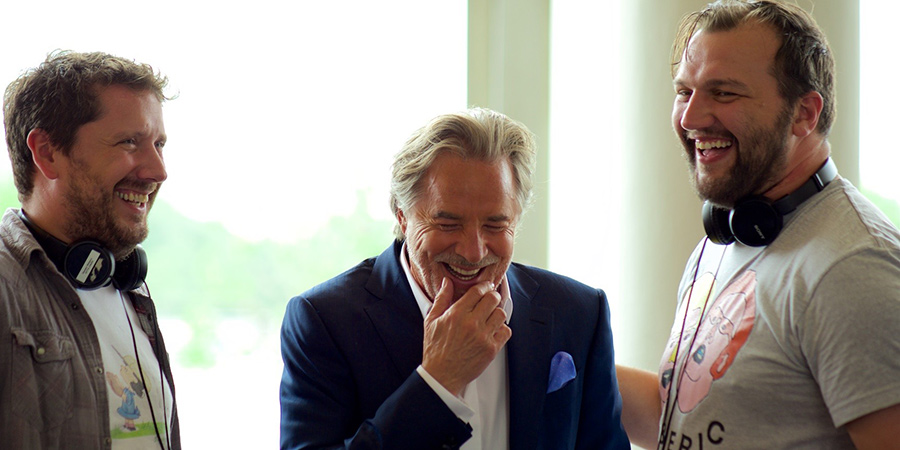
What key skills do you need to be able to do your job well?
I'm super-collaborative, I listen to other people's ideas. I'm TV and film-literate enough to know when things I'm working on might feel less fresh or more derivative than they should, I'm friendly and easy-going, I've never shouted at anyone and I refuse to be shouted at, and I've reached a point where I don't suffer fools any more. I think I'm good at what I do, but I always know I've got more to learn.
What has been your biggest career achievement to date?
I think they're all relative.
When I was starting out, it was seeing my first sketch appear on TV, in Smack The Pony (although for some reason I was credited as Nat Turner on the end credits, which was a humbling moment that's stayed with me ever since - they even spelled my name wrong on the DVD sleeve of Sick Note!).
Later on in my career, it was seeing a Misery Bear sketch we'd made go out as part of the Sport Relief show, starring Sir Mo Farah and Lionel Richie!
And then it was seeing adverts for mine and James's first sitcom, Sick Note, go out on TV. That stuff never gets old. It's an achievement to get something made, to actually get it out there, so much time and effort goes into these things, from so many people, not just the writers, producers, directors, crew and actors, but the execs and commissioners too.
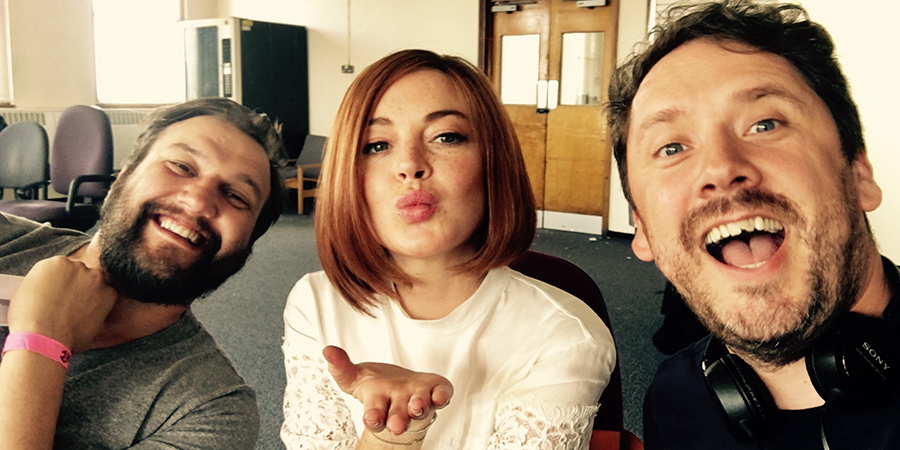
What I've learned is it takes a village to make a piece of entertainment, and it takes fucking ages too.
And what has been the biggest challenge/disappointment?
James and I worked as on-set writers on a big Hollywood film that shot in London a few years back and were expecting it to be an exciting adventure in our careers, but it was an awful slog.
We had a terrible experience. We were treated badly, the hours we were forced to work were borderline criminal, the director was an unpleasant bully, it almost broke us. I barely got to see my 2-year-old for four months as I was out of the house at 5am every day, and usually didn't get home till 1am. And then the finished film just wasn't any good, it was all for nothing.
We overcame that adversity by making friends on the shoot, leaning on each other for emotional support, and using it as a learning experience - it was a lesson in how not to make movies. Luckily, our names do not appear on the credits!

Talk us through a typical day.
James and I both have young families and we are super-committed to making sure we don't let our work swamp everything.
We take afternoons off when work isn't too hectic, we share childcare duties, then jump online in the evening if there's extra work to be done.
We have zero interest in building an empire of entertainment but missing out on our family lives as a result. No job is worth that.
So, yeah, we start our days with nursery and school runs, and normally meet on Zoom around 10am. Every day at the moment is a mix of development meetings, writing pitch documents, practicing out-loud pitches and writing scripts/outlines. We divvy the work up between us, but always keep Zoom on in the background even if we're spread over different projects, coz it keeps the feeling up that we're in the same workspace.
We've been known, on occasion, to take little snoozes. In fact, one time we were both out cold and our wives came into our respective rooms to find two sleeping men snoring at each other over Zoom.
During Covid, this has pretty much been our lives, as it's all been about development. We've written a movie that we'll be directing later in the year; we've produced a podcast - What the F*** Is Going On!? With Mark Steel - which comes out weekly; we've written two or three pilots; we've pitched a bunch of shows both here in the UK and in the US; we've embarked on a documentary; and we've entered co-productions with other production companies, including an animation company, to bring some of our projects to life. We've also optioned some IP, and built relationships with many writers, directors, producers and assorted crew people over this period. We've been busy.
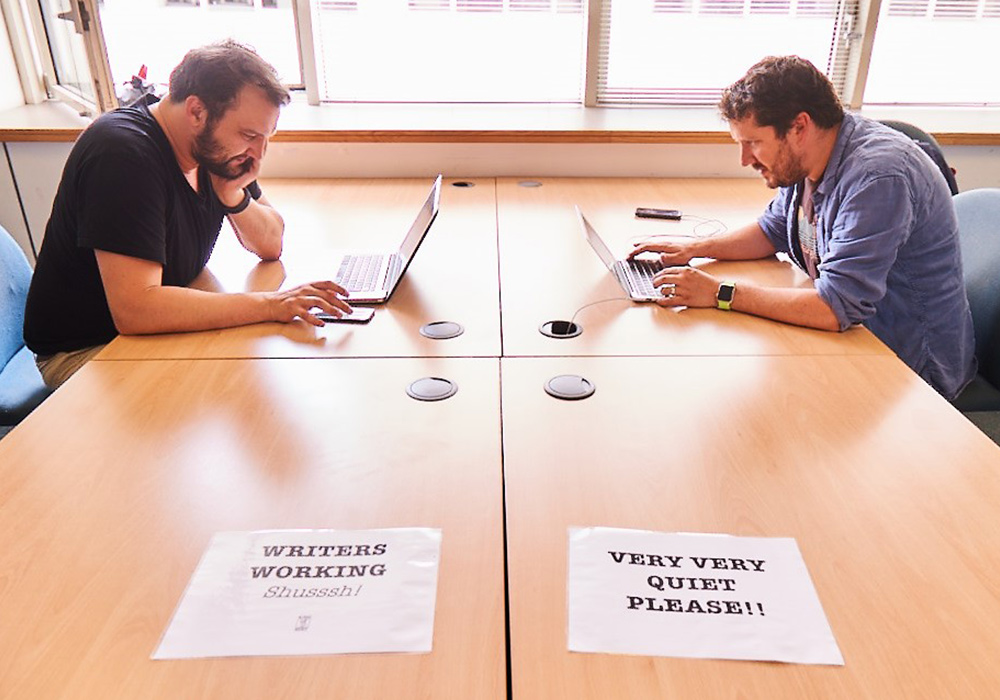
Tell us a trick/secret/resource that you use to make your job quicker/easier.
If you're more than one person, write your outlines and pitches in Google Docs, write your pitch decks in Google Slides and write your scripts in WriterDuet (which imports/exports to Final Draft). Collaborative software is a godsend.
How are you paid?
We get paid on a project by project basis, so fees can vary wildly. A low budget film pays very differently to a big budget TV show, and then it's on a scale depending on whether you originated it or were a writer for hire.
Anything we create we tend to be exec producers on these days, which didn't used to be the case. But there's also soooo much work done before contracts and money even enter the equation: you can develop an idea for years before pitching it sometimes, and if you don't sell it you don't get paid.

If you could change one thing about the comedy industry, what would it be?
There's too much truck given to people in positions of power, who then wield that power as if by working for them they can treat you however they want. I've had a showrunner tell me not to make evening plans for the next four months as, while I'm on their show, they "own me".
I've been shouted at and hit with a rolled up script by a director, who also kicked James in the shin and yelled at him. Bullies are rife in the industry, and bullying is something I've struggled with since I was a kid, so it's a real hot topic for me.
Also, I've worked long and hard for people who paid me the bare minimum, if at all, and then abandoned the work I'd done when they decided it wasn't for them any more. And I've taken it because it can be scary to speak out - you get labelled as difficult if you rock the boat, which can lead to a loss of work.
The people who wield power in this industry have acted for too long like they're demi-gods and everyone is just there to further their careers. And it's often writers and actors who get treated like crap by those people.
Actors have it so rough: they're treated awfully unless they're famous. As someone who came up through writing, I feel a real affinity with the them in the way they're treated like cattle on projects. Yes, some of the ones that get successful let it go to their heads and they can become awful divas, but I often think it's because they're so often treated like shit in the early parts of their career.
So, yeah, those are the things I'd change, based on my personal experience. There's also so much more to be done to course-correct issues around gender, race, LGBT and disability diversity too, onscreen and behind the scenes.
It feels like we're progressing (a writers' room in the 2000s was so often just a white middle class men's club, whereas I've seen more diversity in the last few years) but we're not progressing fast enough.
What tips would you give for anyone looking to work in your area of the industry?
Tenacity is key. And don't get precious about ideas: they really are ten a penny. It's converting ideas into great characters, narrative, dialogue and action that takes skill.
I see too many people get super-precious about one nugget of an idea they have, and don't have any of the other stuff to back that idea up or develop it into anything further. Which is not to say there aren't people out there who steal ideas, because it happens. It's happened to me.
So keep generating new ideas. Build up a body of work. And if you want to be a writer, keep writing, find your voice. I was definitely rubbish when I started out but I think I'm pretty good now. It's that tenacity thing - you'll get rejected so many times, but the one time you don't could be the moment that sets you off on your journey.
What the F*** Is Going On!? With Mark Steel is available on podcast platforms including Acast

